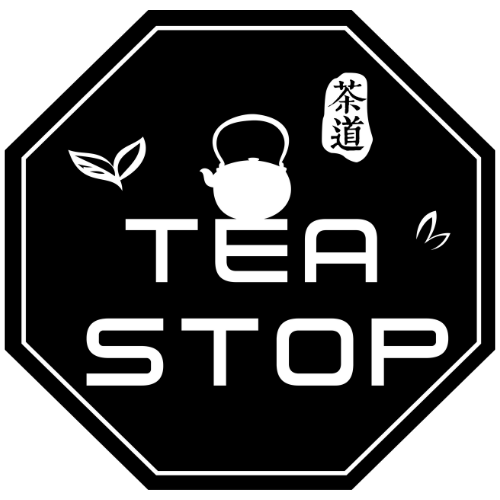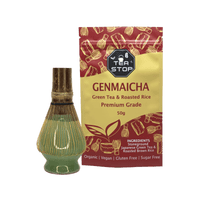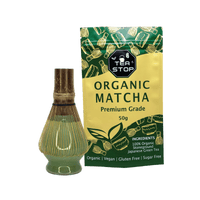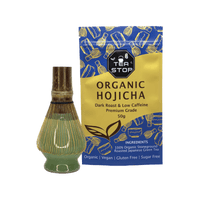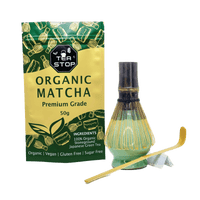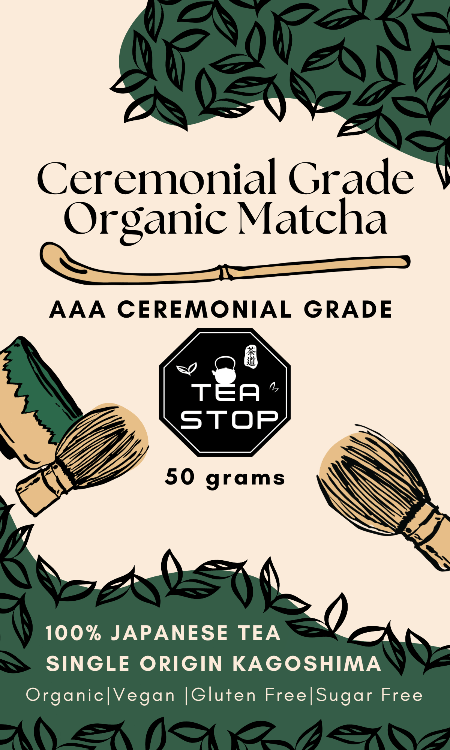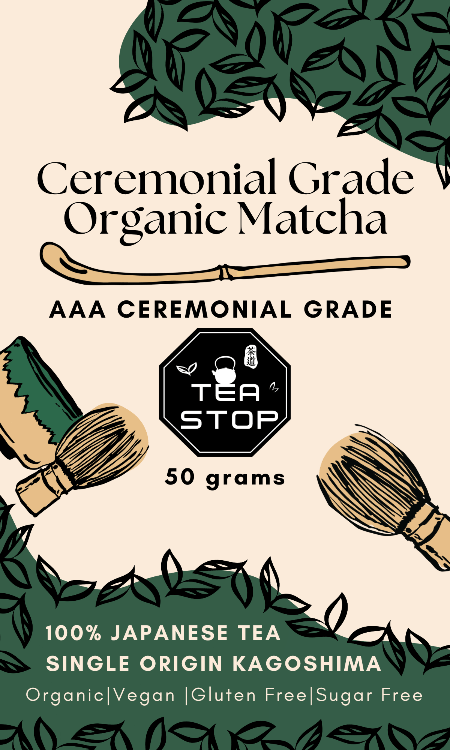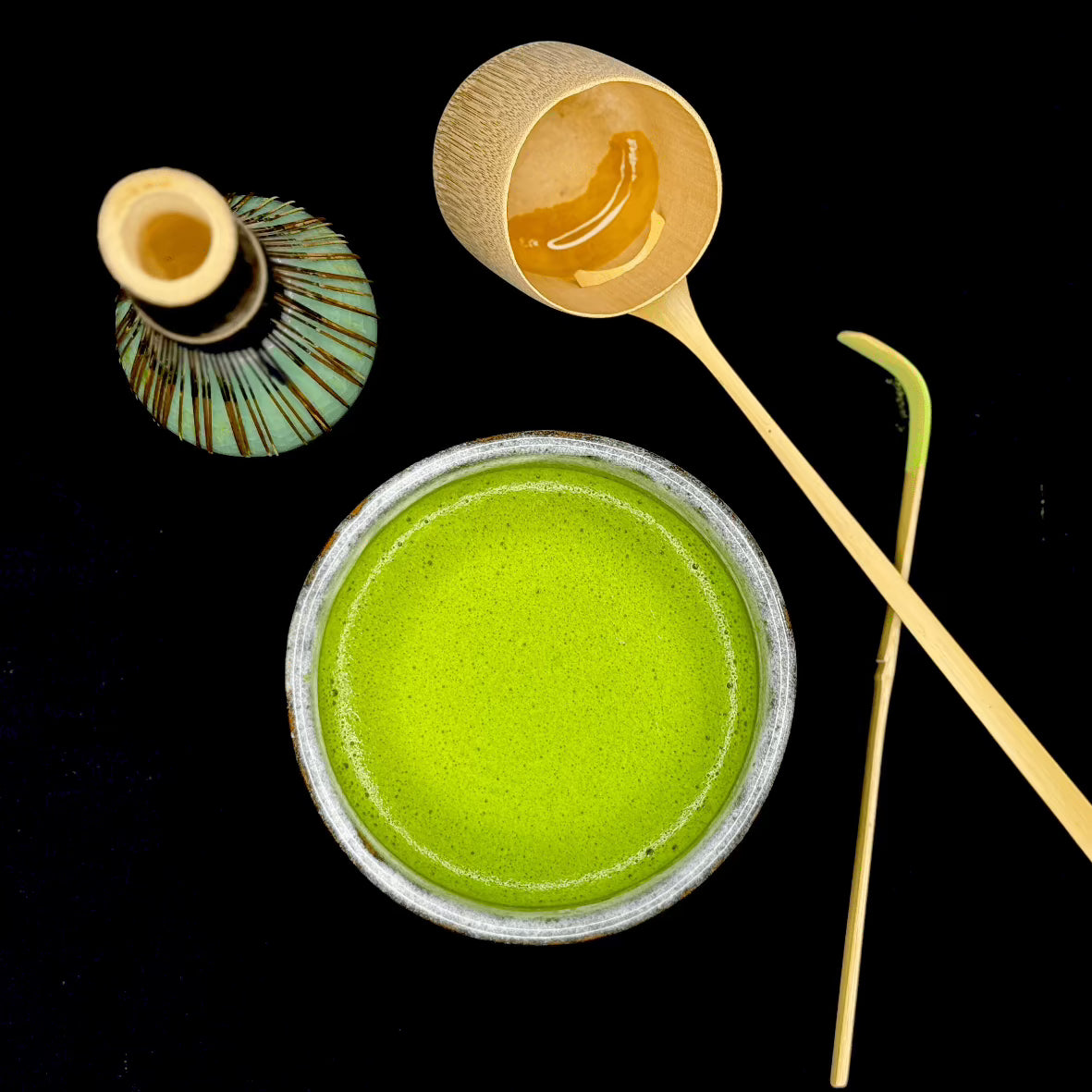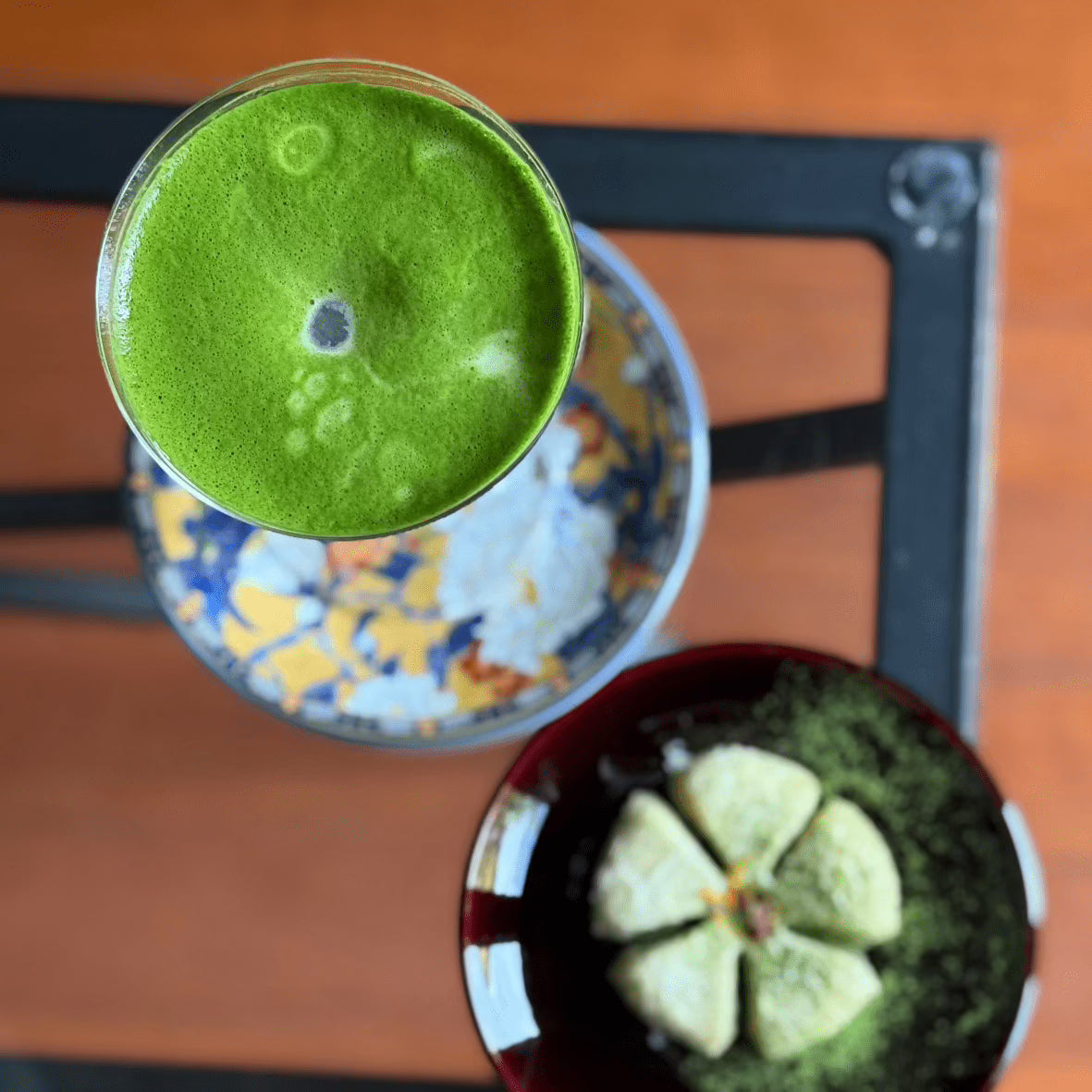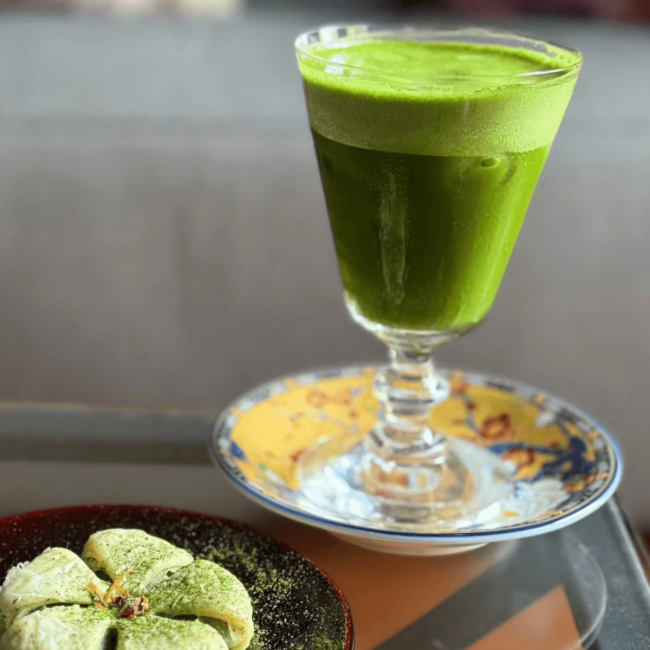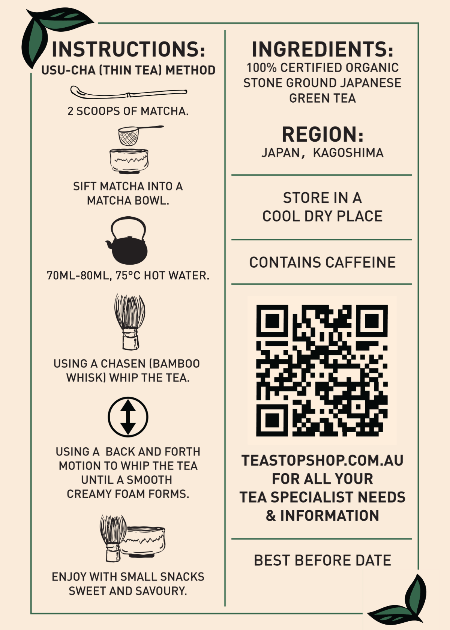
Organic vs. Conventional Tea: Understanding the Differences and Benefits
Share
Tea is loved by people all over the world. It's not just a drink; it's a part of many cultures and a daily ritual for countless individuals. Whether enjoying tea on the lively streets of London or finding peace in Japanese gardens, tea offers an experience like no other. Recently, there's been a rise in the popularity of organic tea among tea lovers who care about their health and the environment.
This article will explore the differences between organic and conventional tea. We'll look at their health benefits, distinct flavors, and effects on the environment. Understanding these differences allows you to make choices that align with your values and taste preferences. Whether you appreciate the eco-friendly methods of organic farming or prefer the traditional techniques used in conventional production, this guide aims to shed light on your journey in selecting tea.

Understanding Organic Tea
Definition of Organic Tea
Organic tea is cultivated without the use of fertilizers, pesticides, or genetically modified organisms (GMOs). This approach prioritizes natural growth processes and environmental conservation. The result is a product that not only supports ecological balance but also offers a purer taste experience. Organic tea encompasses various types, including green, black, oolong, and white teas, each reflecting the unique qualities of their organic cultivation methods.
Organic Farming Practices
The cultivation of organic tea involves several sustainable farming practices designed to maintain soil health and protect the surrounding ecosystem:
- Crop Rotation: This practice helps prevent soil depletion and reduces the occurrence of pests and diseases by alternating different crops in the same area across seasons.
- Natural Pest Control: Instead of relying on chemical pesticides, organic tea farms often employ natural predators or plant-based repellents to manage pests. Techniques such as attracting beneficial insects or using neem oil are common.
- Composting and Natural Fertilizers: Using composted organic material as fertilizer enriches the soil with essential nutrients without introducing harmful chemicals.
These methods not only support healthier tea plants but also foster biodiversity within the plantation environment.
Certification for Organic Products
Certification plays a crucial role in distinguishing genuine organic products from conventional ones. Organizations such as USDA (United States Department of Agriculture) or Australian Certified Organic (ACO) provide certification to ensure that products meet stringent organic standards. This process includes regular inspections and adherence to guidelines that govern organic production.
For consumers seeking authenticity and quality in their tea choices, certified organic labels offer reliable assurance. These certifications indicate that the product has been grown following strict organic principles, contributing to both personal health benefits and environmental welfare.
In addition to organic teas, there are also tea sets, teaware, and various accessories available for those who want to enhance their tea-drinking experience.
The Conventional Tea Approach
To understand what conventional tea means, we need to look at how conventional farming works. When it comes to growing tea, the main goal is to get as much tea as possible using methods that may not always be good for the environment or our health. Here are some of the key things that conventional tea farmers do:
1. Using Synthetic Pesticides
Conventional tea farmers often use synthetic pesticides to keep bugs and diseases away from their crops. These chemicals are effective in preventing damage and ensuring high yields. However, there is increasing concern about the potential risks they pose to human health and the environment. Some studies suggest that long-term exposure to certain pesticides may disrupt hormones or even increase the risk of cancer.
2. Relying on Chemical Fertilizers
In addition to pesticides, conventional tea farming also relies heavily on chemical fertilizers. These fertilizers contain essential nutrients like nitrogen, phosphorus, and potassium that promote plant growth. While they can boost productivity in the short term, over time they can degrade the soil quality and harm beneficial microorganisms.
The impact of these practices goes beyond just the tea farms themselves. Runoff from synthetic fertilizers can pollute nearby water bodies, affecting aquatic life and communities that depend on those water sources. Moreover, the use of pesticides can lead to a decline in biodiversity as non-target species are harmed by these chemicals.
When evaluating conventional tea methods, it's important to consider both environmental and human health factors. Residues from pesticides may linger on tea leaves even after processing, potentially posing risks if consumed regularly over time. This knowledge is crucial for consumers who want to make informed choices between organic and conventional teas.
By examining common practices in conventional farming, we can see why it's necessary to make thoughtful decisions that take into account both immediate agricultural benefits and long-term consequences for our planet and our well-being.
Health Benefits of Choosing Organic Tea
Organic tea is more than just a tasty drink; it's filled with powerful antioxidants that can promote overall health. Antioxidants in Organic Tea, like catechins and polyphenols, are natural substances that help fight oxidative stress in the body. This is important because oxidative stress can cause cell damage and is connected to various chronic diseases.
Immune Function Support from Organic Tea
One of the standout benefits of consuming organic tea is its potential to boost immune function. The antioxidants found in these teas are known for their ability to enhance immune response, making the body more resilient against infections. For example, catechins have been studied for their ability to fight off harmful germs.
Chronic Disease Prevention with Organic Tea
Besides strengthening the immune system, organic tea may also help prevent chronic diseases. Studies suggest that regularly drinking teas rich in antioxidants could lower the risk of conditions like heart disease and diabetes. Polyphenols, in particular, have been linked to better heart health by promoting healthy blood pressure levels and reducing inflammation.
Lower Chemical Residues
Another advantage of organic tea over regular options is the significantly lower amounts of harmful chemical residues. Conventional tea farming often uses synthetic pesticides and fertilizers, which can leave behind traces that might pose health risks if consumed over time. Research shows that organic teas generally have fewer of these residues, making them a safer choice for those worried about chemical exposure.
"Choosing organic tea isn't just about flavor—it's about investing in your health and well-being."
By choosing organic instead of conventional, you may be picking a drink that's not only enjoyable but also good for your long-term health. As you try out different kinds of teas, keeping these health benefits in mind can help you find choices that support your wellness goals.
Flavors Unveiled: Organic vs. Conventional Tea Taste Experience
Terroir Influence on Flavor Profiles
Terroir, a term borrowed from the wine industry, refers to the environmental factors that affect a crop's phenotype, including climate, soil conditions, and terrain. In tea cultivation, terroir significantly influences the flavor profiles of different tea types. Each region imparts unique characteristics to its tea leaves, resulting in a diverse array of tastes and aromas. For example, the mineral-rich soils of Darjeeling produce teas with a distinct muscatel flavor, while the misty hills of Uji in Japan give rise to matcha with sweet umami notes.
Complexity and Richness in Organic Teas
Organic teas are often celebrated for their complexity and richness. The absence of synthetic fertilizers and pesticides allows for the natural expression of terroir characteristics in the tea leaves. These high-quality organic varieties can offer an intricate blend of flavors, ranging from floral and fruity to earthy and nutty notes. This complexity is attributed to the careful cultivation methods that prioritize soil health and plant biodiversity, allowing each tea batch to reflect its unique growing environment.
Uniformity in Conventional Blends
In contrast, conventional teas typically undergo mass production processes that prioritize quantity over quality. The use of synthetic chemicals standardizes growth conditions across large plantations, which can lead to more uniform flavors. While these conventional blends may lack the nuanced taste profiles found in organic teas, they offer consistency that appeals to consumers seeking a reliable flavor experience.
Understanding these flavor distinctions helps tea enthusiasts appreciate the artistry behind each cup and choose products that align with their taste preferences. Whether drawn to the layered richness of an organic oolong or the predictable profile of a conventional black tea blend, exploring both types can enhance one's appreciation for this ancient beverage.

Sustainable Choices: Environmental Impact of Organic Tea Production Methods
Organic tea cultivation stands as a beacon of sustainability, primarily through its commitment to environmentally friendly farming practices. One of the most significant benefits of these practices is their contribution to biodiversity. By avoiding synthetic chemicals and focusing on natural growth cycles, organic tea farms become sanctuaries for a variety of plant and animal life. This rich biodiversity helps maintain balanced ecosystems, which are crucial for the health and resilience of the environment.
Natural Pest Control
Organic farming often employs techniques such as introducing beneficial insects to manage pest populations, rather than relying on chemical pesticides. This method supports a diverse range of species and ensures that the ecosystem remains in balance.
Crop Rotation and Intercropping
These practices prevent soil depletion and increase biodiversity by growing different types of plants together or in succession. This not only enriches the soil but also creates habitats for various organisms, enhancing the overall health of the ecosystem.
The long-term benefits for soil health in organic tea farming are also noteworthy. By using natural fertilizers like compost and green manure, farmers improve soil structure and fertility without harming beneficial microorganisms. This approach contrasts sharply with conventional methods that often deplete soil nutrients over time due to heavy reliance on synthetic fertilizers.
- Soil Enrichment: The use of natural fertilizers promotes soil health by fostering a thriving community of microorganisms essential for nutrient cycling. Healthy soils support robust plant growth and yield high-quality tea leaves rich in flavor and nutrients.
- Avoiding Chemical Residues: Organic farming's commitment to avoiding harmful chemicals reduces pollution risks to waterways and surrounding environments, ensuring cleaner habitats for wildlife.
These sustainable practices not only support local ecosystems but also offer long-term benefits that extend beyond tea cultivation, making organic tea production a responsible choice for those concerned about environmental health.
Making Informed Consumer Choices: Weighing Health Benefits Against Sustainability Considerations When Selecting Between Organic And Conventional Teas
When choosing between organic and conventional teas, understanding the price differences can be crucial. Organic tea often comes with a higher price tag, influenced by various factors such as certification costs and lower yields associated with organic farming methods. These costs reflect the meticulous processes involved in maintaining sustainable practices and ensuring that products remain pesticide-free.
Despite the higher price, many consumers find value in investing more money into organic options due to their potential health benefits. Organic teas are typically free from synthetic chemicals, which may appeal to those seeking a cleaner product with fewer chemical residues. The presence of higher levels of antioxidants in certain organic varieties also offers an attractive health proposition for those looking to support immune function and reduce the risk of chronic diseases.
However, the decision to pay more for organic tea often boils down to personal preference and individual priorities. Some might prioritize sustainability and ethical farming practices, while others might focus on immediate cost savings or taste preferences. To help inform your choice, consider:
- Health Needs: Evaluate if the potential health benefits of organic teas justify their cost.
- Environmental Impact: Assess how important sustainability is in your purchasing decisions.
- Budget Constraints: Balance your budget against the perceived advantages of organic options.
- Taste Preferences: Experiment with both types to see which flavor profiles you prefer.
Ultimately, both organic and conventional teas offer unique qualities that cater to different consumer needs. Exploring various brands within each category can assist in making a choice that aligns with both your values and lifestyle.
Conclusion
Exploring the diverse world of tea invites you to discover both organic and conventional varieties, each offering unique benefits and experiences. With a growing interest in health and sustainability, organic tea presents an appealing choice for those prioritizing natural ingredients and eco-friendly practices. Conversely, conventional teas may offer accessibility and familiarity.
When making your decision:
- Sample a range of brands: Tasting different teas can help you appreciate the distinct flavors and qualities.
- Consider personal values: Align your choice with what matters most to you, whether it’s health benefits, taste, or environmental impact.
- Reflect on budget priorities: Weigh the potential health advantages against cost considerations.
Tea Stop Shop is one such supplier that offers a variety of high-quality organic options for Australian tea enthusiasts. Your unique palate and values will guide you to the type that best suits your preferences.
FAQs (Frequently Asked Questions)
What is organic tea and how does it differ from conventional tea?
Organic tea is made from tea leaves that are cultivated without synthetic pesticides or fertilizers, adhering to specific organic farming practices. In contrast, conventional tea often uses these chemicals, which can impact both the environment and human health.
What are the health benefits of choosing organic tea?
Organic tea is known for its higher levels of antioxidants, such as catechins and polyphenols, which may support immune function and reduce the risk of chronic diseases. Additionally, studies indicate that organic teas typically have lower levels of harmful chemical residues compared to conventional varieties.
How does the flavor profile of organic tea compare to conventional tea?
The flavor profiles of organic teas are often more complex and rich due to the influence of terroir—factors like soil type and climate. In contrast, conventional teas tend to have more uniform flavors due to mass production methods.
What sustainable practices are associated with organic tea production?
Organic tea farming promotes biodiversity through natural farming practices such as crop rotation and natural pest control. These methods contribute positively to local ecosystems and enhance long-term soil health by avoiding harmful chemicals.
Are there significant price differences between organic and conventional teas?
Yes, organic teas often come at a higher price point due to factors like certification costs and lower yields in organic farming. Consumers should consider whether the potential health benefits justify the additional expense based on their personal preferences.
How can I make an informed choice between organic and conventional teas?
To make an informed choice, explore various brands within both categories, considering factors such as health benefits, flavor profiles, environmental impacts, and your values regarding sustainability and health.
